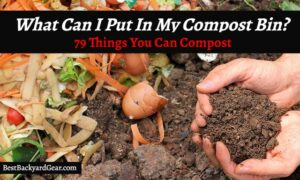If you’re raising backyard chickens, you’re probably already familiar with one of the less glamorous aspects of chicken ownership: manure. With just a handful of chickens, you can quickly accumulate a substantial amount of waste. Not only does it STINK and look pretty gross, it can also be a health hazard if not properly managed.
Fortunately there are quite a few uses for chicken manure. Some you can probably guess (fertilizer), but others may be unfamiliar (i.e., building material). In this article, we’ll explore some of the many ways you can put chicken manure to good use.
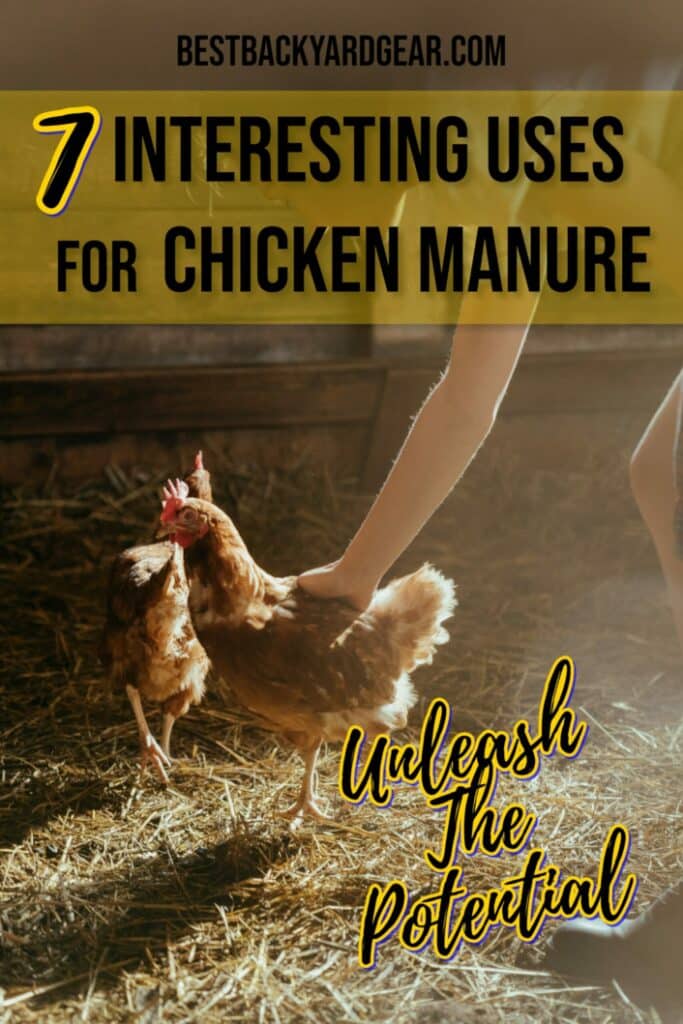
Chicken manure may not be the most glamorous topic, but did you know that it has some interesting uses beyond just being a fertilizer? You might be surprised to learn that this humble byproduct has a range of uses, from pest control to producing renewable energy and more.
7 Uses for Chicken Manure: Table Of Contents
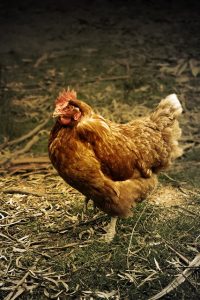
Turn It Into Fertilizer
One of the most common and well known uses for chicken manure is as a natural fertilizer for your garden (compost). That’s because it’s rich in nutrients like nitrogen, phosphorus, and potassium, which are essential for plant growth.
Can You Put Chicken Manure Directly On Your Garden?
No. If you’re thinking of using chicken manure as a fertilizer for your garden, you may want to think again before applying it directly.
While chicken manure is a great source of nutrients for plants, using it fresh can harm your plants and expose you to harmful bacteria like E. coli and salmonella. Fresh chicken manure also has high levels of nitrogen and other nutrients, so high they can actually “burn” your plants and damage their roots.
This is why composting is necessary before using chicken manure as a fertilizer. Composting allows the manure to break down over time, reducing its nitrogen levels and killing off harmful bacteria. Once it’s fully composted, the manure can be applied to your garden and it’ll add lots of excellent nutrients to the soil.
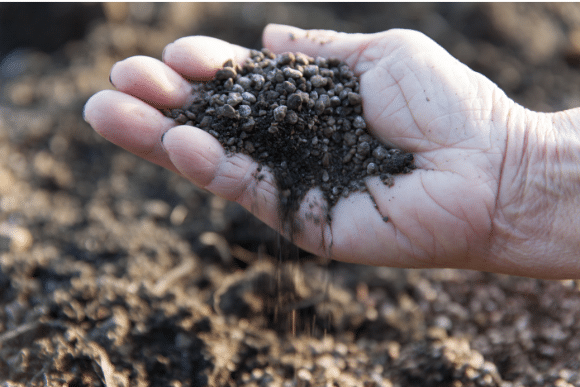
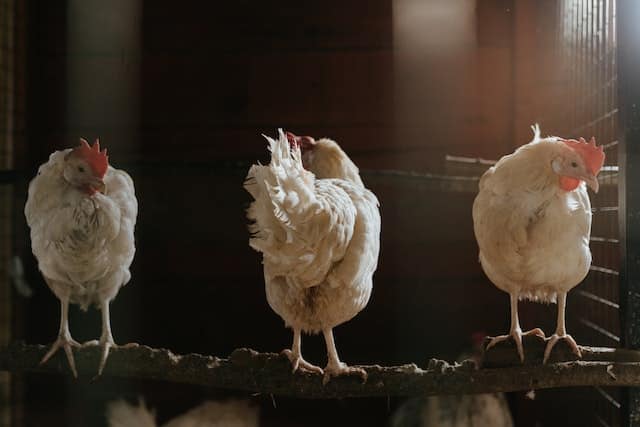
Use It For Energy Production
Believe it or not, chicken manure can also be used to produce renewable energy. It can get converted into biogas (bio-gas) through a process called anaerobic digestion. The biogas created is used to generate electricity, heat homes, or fuel vehicles. This process not only reduces waste and greenhouse gas emissions, but it also provides a renewable source of energy.
Yes, this use for manure is not likely to be one selected by a hobby farmer or family with some backyard chickens, but you have to agree that it’s a pretty sweet use for smelly chicken manure, turning waste into a valuable resource.
Cultivate Mushrooms

Why not see if there’s a mushroom farm that’s fairly local that wants to take the chicken manure you collect from your backyard chicken coop – that’d be a win-win!
Animal Feed (Weird, But True)
Did you know that chicken manure can also be used as an ingredient in animal feed? It might sound a bit strange, but it’s actually a nutritious and cost-effective way to supplement animal diets. Chicken manure contains a range of vitamins, minerals, and amino acids that are beneficial for livestock.
(I hope it doesn’t need to be spelled out that putting some fresh chicken manure in your cow’s trough is a straight up NO. It’s important to use caution when using chicken manure in animal feed, as it can sometimes contain harmful bacteria – allow the experts to work with it first and convert it.)
Another Take On "How To Use Chicken Manure".
If you prefer taking in info via video over written format, learn more about different ways to use chicken manure in this video.
It's A Natural Pest Control
If you’re looking for a natural way to control pests in your garden, chicken manure might be the answer. By brewing a “chicken manure tea” and spraying it lightly on your plants, you can repel pests like aphids, slugs, and snails – and even deer!. This method is not only effective, but it’s also eco-friendly and doesn’t harm beneficial insects like bees and butterflies.
Just make sure to dilute the tea properly and avoid getting it on any edible parts of your plants (remember… E-coli, bacteria, etc.)
Addition To Building Material
Believe it or not, another of the uses for chicken manure is as a building material. When mixed with clay, straw, and other natural materials, it can be formed into bricks or plaster. These materials are not only eco-friendly, but they also have insulating properties, making them an ideal choice for sustainable building projects. Just make sure to handle the manure safely and wear protective gear when working with it – and allow some serious drying time.
Protect Against Soil Erosion
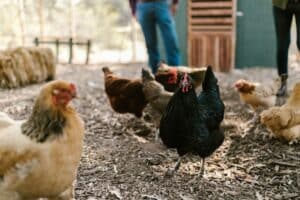
You can actually do this pretty easily at your own property – you don’t need to be a scientist to do this. Just be careful not to add too much at once. Applying too much chicken manure at once can actually have the opposite effect and contribute to soil erosion. Just apply a thin layer of manure and mix it into the soil directly, or combine it with other organic materials like straw or mulch to create a protective layer over the soil.
In Conclusion
Chicken manure is a surprisingly versatile resource! Besides fertilizer, it can be used for energy production, mushroom cultivation, animal feed, pest control, building material, and protection against soil erosion. These uses not only promote sustainable practices but also give you a chance to repurposing what might otherwise be considered just smelly waste.



